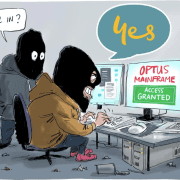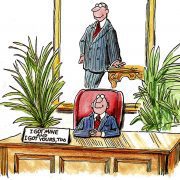Three Epic Fails In Maintaining Trust
What do statisticians, one of the world’s largest car companies and the NSW Police have in common?
They all, in varying ways, have managed to create for themselves the most difficult environment for ongoing stakeholder engagement. One of little to no trust.
The 2016 Census
The Australian Bureau of Statistics is so comprehensive a failure that a War & Peace sized tome could be required to detail just how many mistakes were piled upon mistakes. However, at the core of the debacle was the arrogant belief that ‘of course everyone trusts us’ and ‘our systems are inviolate.’ Wrong on both counts. Trying to sneak a change of privacy rules on the public with a press release and expecting no pushback is just naive. In an environment of increased awareness of online data privacy it really is adhering to Jeremy Clarkson’s famously sarcastic protestation of “what could possibly go wrong?”
Then to try justifying the privacy rule change by claiming the people provide more information on social media platforms forgets the basic difference that, if they do so, people share that information by choice, not by stealthily enacted bureaucratic fiat.
The arrogance that led to the Census site crash and the confusion of message after the almost inevitable calamity occurred (that some may say they almost goaded hackers into delivering) was the sort of slow-motion train wreck of failed communication that was as predictable as it was cringe-worthy.
VW and Motoring Media
Speaking of arrogance: Volkswagen. The diesel emissions cheating scandal has been running for over 12 months. Still VW seems either unwilling or incapable of finding a way to engage sensibly with its most important stakeholders in any effort to rebuild its shattered reputation.
The latest stroke of PR genius was an official statement from VW Australia refusing to participate in the now well established Australia’s Best Cars awards run by the journalists of the combined state-based Auto Clubs, under the AAA umbrella. A nation-wide group of clubs that represent over 7 million Australian members. Really?
Here is what they said under the name of their local MD, (I’m not making this up).
“The AAA’s public statements inspire little confidence in its grasp of fundamental issues,” Mr Bartsch said. “Moreover, the AAA has become hostile not only to our brands, but to the motor vehicle industry that employs tens of thousands of Australians.”
It is bizarre that this petulant and arrogant tit-for-tat is seen by VW as a valid corporate response to the AAA’ disqualification of VW group vehicles form the 2015 awards, just as the diesel-gate scandal was at its high-point.
Never mind that if only 10% of the AAA members read resulting negative commentary in the Club’s various monthly journals that is another 700,000 consumers who have ‘opinion leaders’ telling them VW is a poor corporate citizen.
NSW Police and the Lindt Siege Inquest
If there is one organization that relies on public trust almost more than any other, it is the Police. We see what happens when that trust is shattered. The USA appears trapped in an endless cycle of mutual distrust and aggression between their Police forces and the black population.
The NSW Police, for some reason, appear to expect, if not demand, public trust without wishing to be too publically accountable. They spent a good part of 2015 engaged in ugly internal power struggles, played out very publicly in the Parliamentary Enquiry into Internal Affairs bugging of, now senior, police back in the late 1990s.
Now they top that mess with uncoordinated and frankly concerning statements about the chain of command (or lack of) in relation to the Lind Siege and the resulting loss of two civilian lives.
The public could be forgiven for asking ‘who is running this s*#t-show’?
Once again there has been no obvious concern for how the sight of senior leadership ducking for cover will play with their key stakeholders and what long-term reputational damage is being done. Perhaps that is a side effect of lengthy tenure and comfortable retirement provisions?
All three examples have not only damaged the reputation of the organisations involved but also created a stakeholder trust deficit that will be very hard to correct.
The first step in regaining any degree of trust is an understanding that there must be an acknowledgment of fault, together with a recognition that a great deal of hard work will need to done to earn that trust back. So far all three show no real sign of that basic understanding.
For now, at least, they serve the purpose of offering clear examples of how not to manage stakeholder relations. However, the really concerning trend is that, even with all that we now know about effective stakeholder management, such monumental mistakes just keep happening.












Leave a Reply
Want to join the discussion?Feel free to contribute!